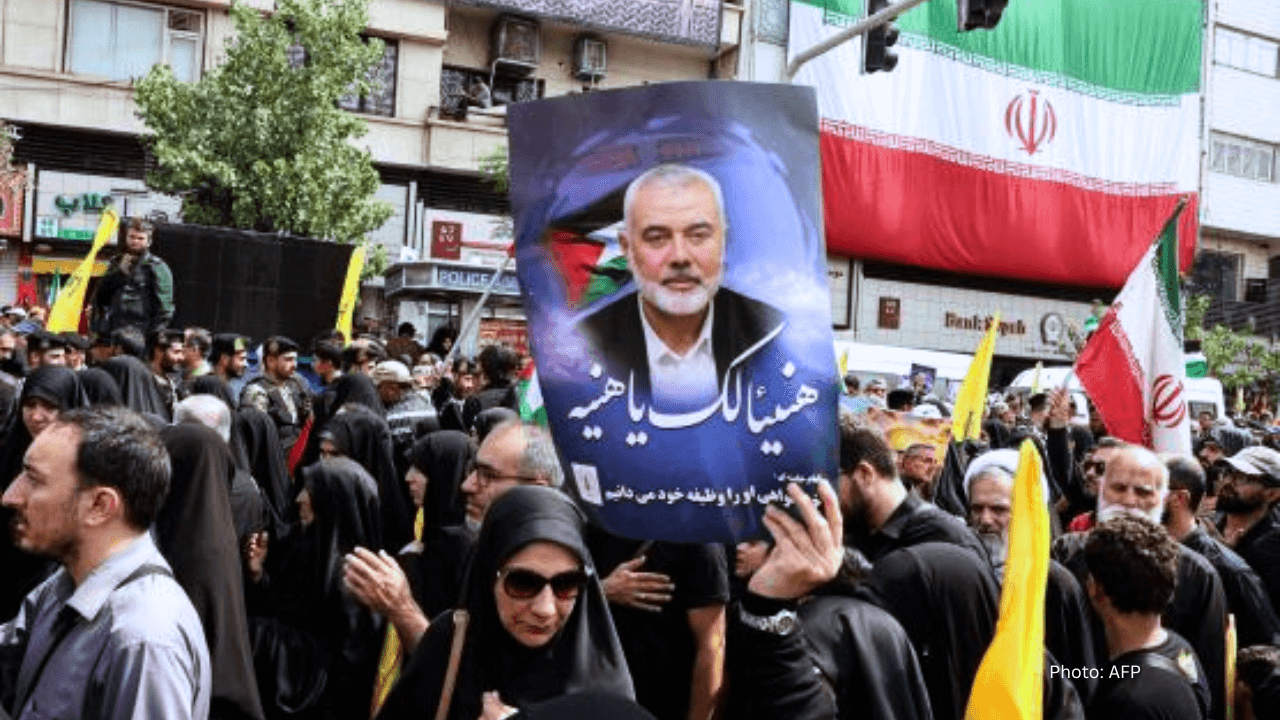Leadership Decapitation: Israel’s Precision Strikes
Nuzhat Tabassum | 31 July 2024
The peace talks that were in the process between Israel and Hamas over the Gaza war have again been destroyed with the assassination of political leader Ismail Haniyeh on 31 July, one of the most senior Hamas leaders in Iranwho was in Tehran for the inauguration of Iran’s new president. He was killed by an explosive device which was smuggled covertly into the Tehran guesthouse where he was staying. Iran is blaming Israel for the attack and its supreme leader has vowed to take revenge on Israel. However, on the other hand, Israel has not mentioned anything about it yet. Not only did Israel kill Ismail Haniyeh but also Hezbollah's top commander Fouad Shukur, the previous day(30 July), in the Lebanese capital, Beirut, flaming tensions between Israel and Hezbollah. Israel’s constant attack on leaders who have close ties with Iran is taking the region to a wider war that should worry us all. Israel claimed that the attack in Beirut was in retaliation for a missile strike it said was launched by Hezbollah and killed twelve children in the town of Majdal Shams in the Israeli-occupied Golan Heights. The accusation has been sharply refuted by Hezbollah.
Joel Rubin, former deputy assistant secretary of state for House Affairs during the Obama administration has stated that this will jeopardize the ceasefire talks as well as the hostage exchange deal. Iran is looking for retaliation where they can produce enough impact to deter future attacks as well as be cautious of igniting a regional war. In Israel, it is widely believed that Netanyahu must keep the war going to keep the domestic problems at bay. The situation in the Middle East has deteriorated to the point that the US could get involved in the regional war even if they do not want to. This is exactly what Netanyahu wants. It depends on Iran’s response whether the US and the West will get involved. President Biden thinks that Iran will not carry out a retaliatory attack if a deal is reached to end the war in Gaza. But by sending $20 billion worth of weapons to Israel which is also the largest deal after the onset of the Gaza war; Biden is not exactly helping to stop the risk of a wider war. A war right now in the Middle East will be a loss for Iran, Israel, and the US as well.
Three steps might bring peace to the region. The first is an immediate ceasefire between Israel and Hamas. Currently, the US is the only one who has the leverage to push Israel for a ceasefire if the US wants to keep itself away from any war in the region. Iran, on the other hand, should focus on how to hold Israel accountable rather than retaliation against Israel. Its reaction to Haniyeh's murder might bolster support from throughout the world for a free Palestine and an early cease-fire in this way. Secondly, the US should welcome the newly elected president of Iran who is committed to ending forty years of hostility with the US. Cooperation between the two countries is necessary to bring peace between Israel and Iran, bring back the Iran nuclear deal, and put an end to decades of risky regional conflicts. Lastly, getting the UN Security Council to set up a platform for communication and collaboration between Iran and its Arab neighbors surrounding the Persian Gulf would be a crucial first step.
However, the US and Iran’s response regarding the current situation is only going to jeopardize the thin line of stability that the Middle Eastern region has been holding on to for the past few months. The United States has deployed a naval carrier strike group to the Eastern Mediterranean in response to concerns that an Iranian or allied strike on Israel could trigger a regional war. This deployment is intended to deter Iran from initiating or retaliating against Israel, rather than to escalate tensions in the region. Iran has, on the other hand, called for restraint after these recent assassinations which have angered Hamas, Hezbollah, and other groups, causing a significant rift between Iran and its allies. The recent developments in the Middle Easthave triggered the fear of an all-out war in the Middle East yet again.
Nuzhat Tabassum is Program Assistant and CGS
